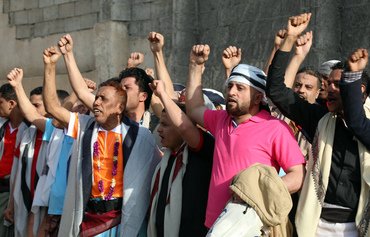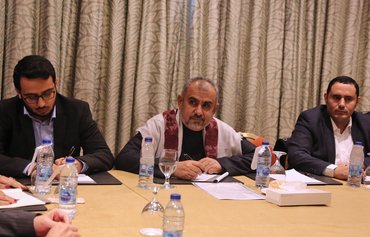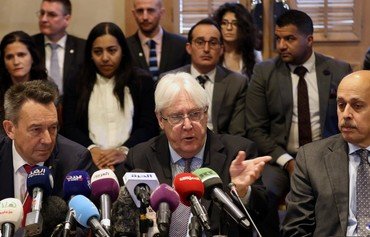Yemen's government and the Iran-backed Houthis (Ansarallah) have taken part in several prisoner exchange operations in response to the UN's calls for the release of detainees during the novel coronavirus (COVID-19) pandemic.
Two prisoner exchange deals were successfully conducted between government forces and the Houthis in al-Jawf and al-Hodeidah provinces, the militia said.
During these exchanges, nine prisoners were released "through local understandings", the head of the Houthis' prisoner affairs committee Abdul Qader al-Murtada said in an April 8th social media post.
These events were preceded by other small-scale prisoner exchanges in these areas, which have been negotiated directly between military commanders or with the mediation of local tribes.
"Such deals are continually made" between Yemeni forces and the Houthis on the battlefronts, and are negotiated "directly between the commanders of those units", Deputy Minister of Human Rights Nabil Abdul Hafeez told Al-Mashareq.
He also noted the role of "tribal mediations, which have played an active role in the conduct of prisoner and detainee swaps".
A prisoner exchange that took place in Taez province in December concluded with the release of 135 prisoners from the two sides, Abdul Hafeez said.
Earlier, on October 17th, the Yemen Youth TV channel reported the completion of a prisoner exchange deal between Yemeni forces and the Houthis in al-Bayda province, where the two sides exchanged five prisoners each.
The Houthis' leaders are keen to secure the release of high-level prisoners "in any way possible", he said, adding that this does not extend to militiamen who are tribal fighters, whom it views as replaceable.
Implementing the Stockholm agreement
"The Stockholm agreement stipulated the release of all prisoners and detainees, yet the Houthis have not abided by these terms," Abdul Hafeez said.
This prompted the UN to intervene through its envoy, he said, and it was agreed that a phased release of the prisoners would take place, with 1,420 prisoners to be released in the first phase, which "has not been done".
Abdul Hafeez stressed the need for guarantees that stipulate the prisoners released by the government do not return to the battlefronts, "which would be akin to infusing new blood into the militia's ranks".
There also need to be "guarantees that those released from Houthi prisons are not thrust back into prison once again", he said.
"This sort of prisoner exchange was done at all the battlefronts with the national army through tribal mediators loyal to the Houthis and direct intervention by Houthi military commanders," political analyst Faisal Ahmed told Al-Mashareq.
"It is important that the parties to the conflict in Yemen, including the Arab coalition, seize this opportunity presented by the UN's efforts to broker a truce and a ceasefire and release prisoners and detainees," he said.

![A Yemeni man weeps during a prisoner swap between the Yemeni government and the Houthis in Taez on December 19th, 2019. [Ahmad al-Basha/AFP]](/cnmi_am/images/2020/04/30/23771-Yemen-Taez-prisoners-600_384.jpg)






